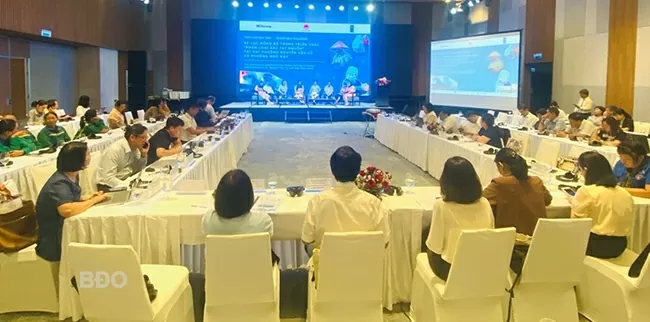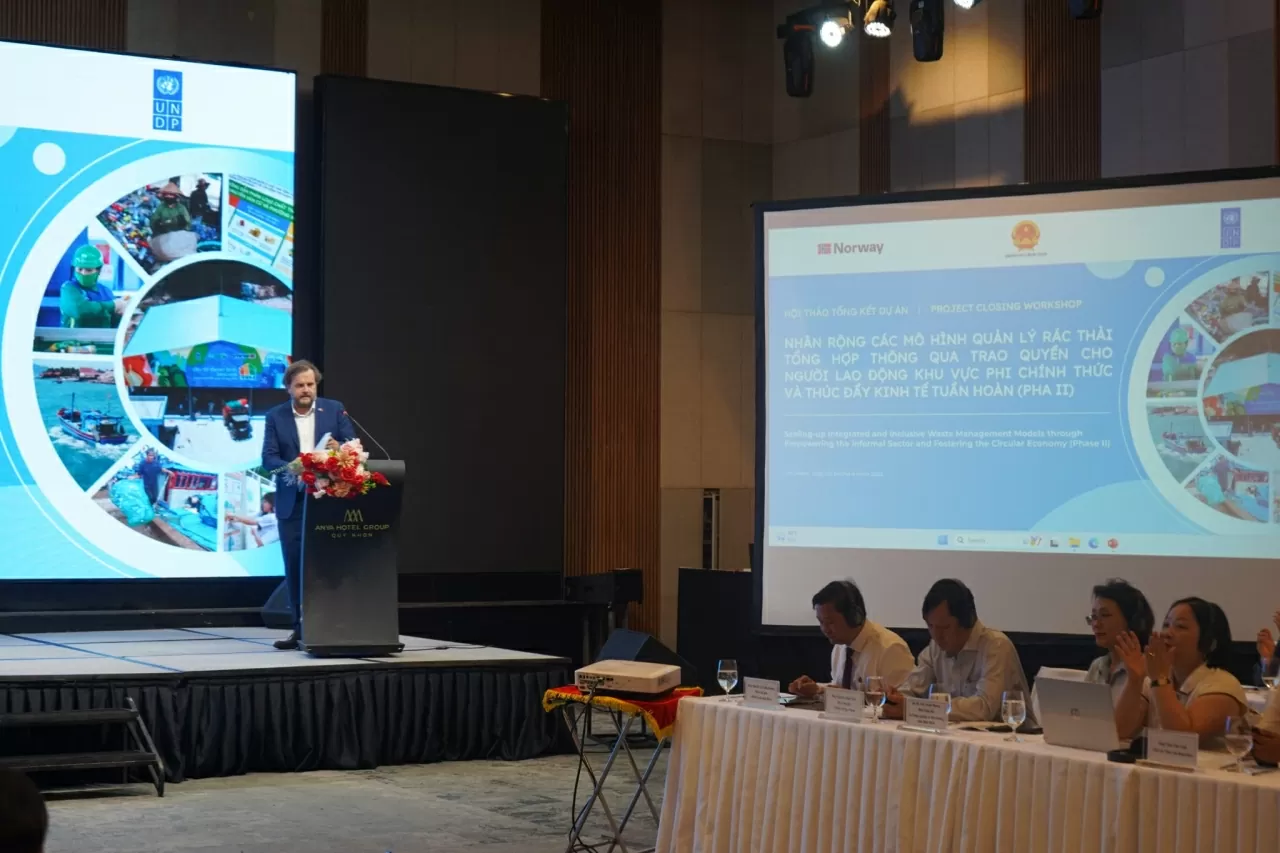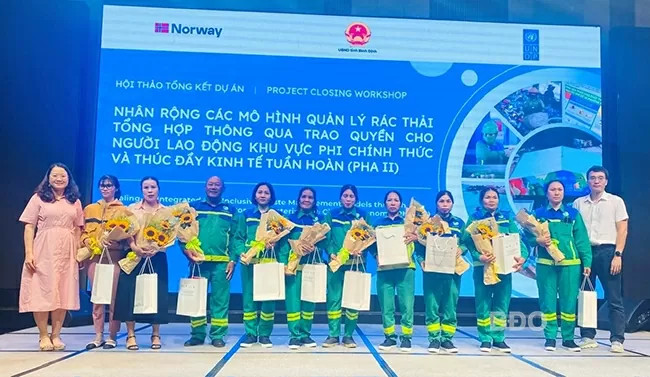
Waste management project funded by Norway brings tangible changes to Binh Dinh
Latest
 |
| The overview of the workshop of the project funded by Norway. (Photo: UNDP) |
Recently in Binh Dinh, Vietnam, The People’s Committee of Binh Dinh Province, the United Nations Development Programme (UNDP), and the Norwegian Embassy in Vietnam jointly organized the closing workshop of the project “Scaling-up Integrated and Inclusive Waste Management Models through Empowering the Informal Sector and Fostering the Circular Economy.”
Funded by the Government of Norway and technically supported by UNDP, the project has been implemented since 2021 and has delivered tangible results in improving household solid waste management systems and raising public awareness.
One of the project’s most notable achievements is the household waste separation at source, piloted in Ngo May and Nguyen Van Cu wards, involving nearly 13,000 households. Remarkably, even after direct project support ended, 60% of households continued the practice, with over 90% expressing a willingness to maintain it-a clear indication of the initiative’s lasting impact on behavior and awareness.
 |
| Mr. Erlend Skutlaberg, First Secretary at the Norwegian Embassy in Vietnam shared in the workshop. (Photo: K.T) |
Another innovative model, “Fishing Boats Bring Plastic Waste Back to Shore,” attracted over 150 boat trips within six months, collecting more than three tons of plastic waste from the sea. Meanwhile, the Material Recovery Facility (MRF) in Long My, with a processing capacity of two tons of plastic per day, has recovered over 120 tons of plastic, including more than 58 tons of PET sold to recycling companies.
Significantly, nearly 200 informal waste collectors have been organized into clubs and provided with training, safety equipment, and support to access markets—affirming their indispensable role in the household waste value chain.
Speaking at the workshop, Mr. Nguyen Duc Toan, Vice Chairman of the Quy Nhon City People’s Committee, emphasized the project’s environmental significance and its alignment with the city’s commitment to sustainable development and the circular economy. He stated:
“These results clearly show that when local governments take the initiative, citizens participate, and international organizations and businesses collaborate, environmental challenges that once seemed intractable can be transformed into opportunities for sustainable development.”
While acknowledging the project’s achievements, he also highlighted remaining challenges, such as uneven adoption of waste separation practices and a lack of stable support mechanisms for informal waste workers. He called on all stakeholders to collaborate in improving policy frameworks and expanding the implementation of successful models.
The project has helped position Quy Nhon as a “living laboratory” for integrated and inclusive household waste management models. In his opening remarks, Mr. Patrick Haverman, UNDP Vietnam Deputy Resident Representative, stressed:
“We are not here to close a project but to prepare for what comes next. We celebrate not just results, but an approach that puts inclusion and innovation at the heart of Vietnam’s transition toward a circular economy.”
He noted that the piloted models - waste separation at source, plastic recycling, and marine litter collection by fishing boats - have all proven effective and scalable at the national level.
 |
| The project has helped position Quy Nhon as a “living laboratory” for integrated and inclusive household waste management models. (Photo: N.N) |
Representing the donor, Mr. Erlend Skutlaberg, First Secretary at the Norwegian Embassy in Vietnam, stated: “This project in Quy Nhon and other cities is a powerful example of how sustainable waste management can contribute to that global mission. From the establishment of a high-capacity Material Recovery Facility, to the innovative ‘Fishing Boats Bring Plastic Waste Back to Shore’ initiative, to the empowerment of informal waste workers, these are not just project outputs—they are building blocks for a circular economy and a cleaner, more resilient future.”
Beyond technical models and infrastructure, the project has also made significant contributions to institutional development. Its practical outcomes have informed the development and revision of provincial regulations on waste separation at source and have provided valuable input to national policy frameworks, including the National Action Plan on Circular Economy and the National Action Plan on Ocean Plastic Waste Management.
Looking ahead, UNDP and its partners are actively pursuing next steps, including: Scaling up successful models to larger urban areas; Piloting new solutions such as co-processing and deposit-return systems; Promoting eco-design and developing markets for secondary materials.





















